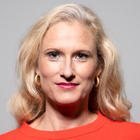The European endowment for democracy between wishful thinking and reality: flexible and unbureaucratic?
Leininger, Julia / Solveig RichterBriefing Paper (11/2012)
Bonn: German Development Institute / Deutsches Institut für Entwicklungspolitik (DIE)
Dt. Ausg. u.d.T.:
Der Europäische Demokratiefonds zwischen Wunsch und Wirklichkeit:
flexibel und unbürokratisch?
(Analysen und Stellungnahmen 9/2012)
To ensure that the Endowment has a positive impact, numerous key questions have yet to be answered, since the Statutes are very vague in many places. It is for the Board of Governors, which will probably meet in September 2012 for the first time, to decide what form the strategic and operational decision-making and allocation procedures should take. Only if the EED is able to take political action flexibly and the continuation of its activities in a target country in the long term is guaranteed by other EU institutions or Member States can it represent a genuine added value for European democracy promotion. For this the following aspects are of relevance:
- Flexibility of procedures: If bureaucratic decision-making processes are to be avoided, it would be advisable for the Board of Governors to exercise restraint in the EED’s operational activities and to confine itself to the EED’s strategic orientation. The future Executive Director will have a key role to play in this respect.
- Support rather than control: The Member States should either be more generous with their voluntary contributions to the EED or not use their voting rights in the Board of Governors. The more financial room for manoeuvre and political backing the EED receives, the more flexibly it will actually be able to act.
- Contextual sensitivity: Compared to the European Instrument for Democracy and Human Rights (EIHDR) and the EU Civil Society Facility, the EED will be able to add value if it cooperates closely with experienced non-governmental democracy promoters in the target country and joins with them in identifying shortcomings in the assistance provided.
- Long-term promotion: The EED’s establishment should not result in the allocation of resources to actorcentred measures at the expense of an institutionally aligned policy. They may have no effect at all or even counterproductive effects if they are not backed by a clear political strategy. From the outset, ways of ensuring long-term follow-up assistance, through EU instruments as the EIDHR, should therefore be sought.
- Reform of the EIDHR: It is crucial to continue the planned reform of the EIDHR on which work has already begun. After all, its shortcomings will not be eliminated simply by the establishment of a new institution.

